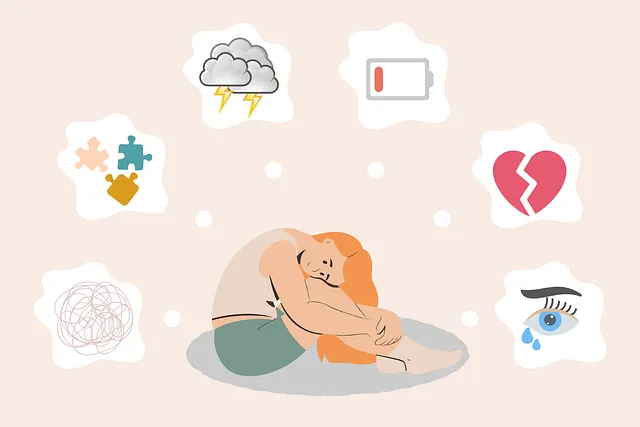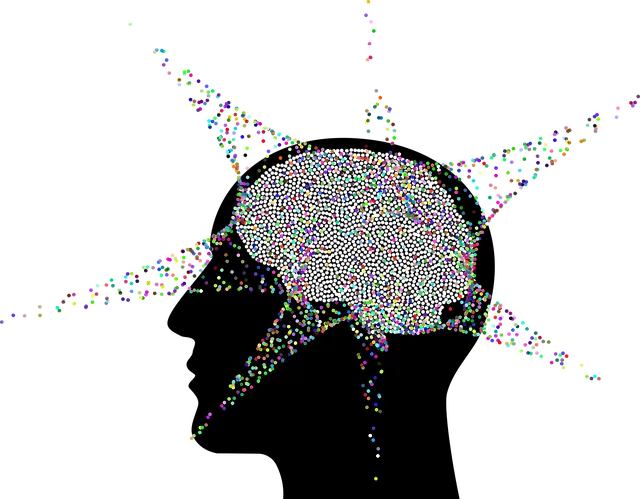Greenwood Village Kaiser Permanente mental health facility prioritizes crisis intervention team (CIT) training as a cornerstone of its patient-centric care philosophy. Comprehensive programs equip healthcare professionals with skills to de-escalate crises, manage risks, and connect patients with long-term care plans. Emphasizing evidence-based practices, stress management, and public awareness, these initiatives enhance mental wellness through compassionate interventions. Rigorous evaluation methods ensure continuous improvement, fostering a supportive work environment and optimizing patient outcomes at Greenwood Village Kaiser Permanente.
In today’s complex landscape, effective crisis intervention teams (CITs) play a pivotal role in mental health care, ensuring swift and competent responses to individuals in distress. This article explores the critical components of CIT training programs, drawing insights from the successful model at Greenwood Village Kaiser Permanente, a leading mental health facility. We examine how comprehensive training prepares professionals to handle real-world crises, emphasizing skills, strategies, and evaluation methods that drive continuous improvement within CITs, ultimately enhancing care outcomes.
- Understanding Crisis Intervention Teams: A Lifesaving Role in Mental Health Care
- Greenwood Village Kaiser Permanente: A Model for Training and Implementation
- Essential Components of Effective Crisis Intervention Team Training Programs
- Preparing Professionals: Skills and Strategies for Real-World Applications
- Measuring Success: Evaluation and Continuous Improvement in Crisis Response
Understanding Crisis Intervention Teams: A Lifesaving Role in Mental Health Care

In the world of mental health care, Crisis Intervention Teams (CITs) play a pivotal role in saving lives and mitigating crises. These specialized teams, often composed of trained professionals from various disciplines, are designed to respond swiftly and effectively to individuals experiencing severe emotional distress or thoughts of self-harm. At Greenwood Village Kaiser Permanente mental health facility, for instance, CIT members are equipped with the knowledge and skills to de-escalate high-risk situations, ensuring patient safety and promoting positive outcomes.
CIT training programs focus on developing a comprehensive understanding of mental illness, stigma reduction efforts, and trauma support services. Participants learn strategies to assess risk, provide immediate interventions, and connect individuals with long-term care plans. By fostering open communication and empathy, these programs aim to not only enhance the skills of healthcare professionals but also contribute to the broader goal of improving mental wellness through the production of evidence-based mental wellness podcast series.
Greenwood Village Kaiser Permanente: A Model for Training and Implementation

Greenwood Village Kaiser Permanente stands as a beacon of excellence in mental health care, offering a comprehensive model for crisis intervention team training. This facility has pioneered innovative approaches to preparing healthcare professionals for high-stress situations, ensuring they are equipped with effective conflict resolution techniques and crisis intervention guidance. By prioritizing staff well-being through burnout prevention strategies, Greenwood Village Kaiser Permanente not only enhances patient outcomes but also fosters a supportive work environment.
Their training programs focus on building resilience among team members, teaching them to navigate challenging scenarios with empathy and efficiency. The facility’s commitment to continuous improvement has led to a reduced turnover rate and increased job satisfaction among mental health professionals. This holistic approach, integrating burnout prevention, conflict resolution techniques, and crisis intervention guidance, sets Greenwood Village Kaiser Permanente apart as a leader in training and implementation within the healthcare sector.
Essential Components of Effective Crisis Intervention Team Training Programs

Effective crisis intervention team (CIT) training programs are integral to ensuring that healthcare facilities, such as Greenwood Village Kaiser Permanente mental health facility, can provide swift and compassionate support during crises. These programs should incorporate several essential components to equip teams with the necessary skills. Firstly, they must offer comprehensive Mental Wellness Coaching Programs Development. This includes teaching teams how to recognize early warning signs of distress, understand the nuances of various mental health conditions, and apply evidence-based strategies for de-escalation.
Additionally, training should focus on enhancing Communication Strategies, emphasizing active listening, empathy, and clear, respectful dialogue. Teams must be adept at building rapport with individuals in crisis to foster trust and facilitate open communication. Equally important is the integration of Stress Management techniques within the curriculum. These can empower team members to remain calm under pressure, thereby creating a safer environment for both staff and clients during high-stress situations.
Preparing Professionals: Skills and Strategies for Real-World Applications

At the Greenwood Village Kaiser Permanente mental health facility, crisis intervention team (CIT) training programs are meticulously designed to prepare professionals for real-world applications. These programs go beyond theoretical knowledge, focusing on practical skills and strategies that enable frontline staff to effectively manage and de-escalate crises. Through interactive simulations, role-playing scenarios, and peer feedback sessions, participants learn coping skills development and positive thinking techniques tailored to diverse patient populations.
The curriculum also emphasizes the importance of public awareness campaigns development, equipping professionals with tools to educate communities about mental health issues and promote early intervention. By combining these evidence-based practices, Greenwood Village Kaiser Permanente ensures that its CIT members are well-equipped to handle crises sensitively and efficiently, ultimately improving patient outcomes and fostering a supportive environment for those in need.
Measuring Success: Evaluation and Continuous Improvement in Crisis Response

Measuring success is an integral part of any crisis intervention team training program, especially at facilities like Greenwood Village Kaiser Permanente mental health facility. Effective evaluation methods allow for continuous improvement in crisis response, ensuring that teams are equipped with the most up-to-date techniques and strategies to support individuals in distress. This involves assessing not only individual performance but also the overall impact of the program on the emotional well-being promotion techniques employed by team members post-training.
By utilizing various tools, such as pre- and post-training assessments, feedback from participants, and case study analyses, trainers can gauge the proficiency of crisis intervention guidance provided. This data provides insights into areas that need refinement, enabling adaptations to Stress Reduction Methods incorporated in the training curriculum. Regular evaluations foster a culture of continuous learning, where best practices are shared and implemented, ultimately enhancing the quality of care delivered by crisis intervention teams.
Crisis intervention team (CIT) training is a vital component in enhancing mental health care, as demonstrated by successful programs like those at Greenwood Village Kaiser Permanente. By equipping professionals with the necessary skills and strategies, these training initiatives enable effective real-world applications, ultimately improving crisis response within mental health facilities, such as the Greenwood Village Kaiser Permanente. Continuous evaluation and improvement are key to ensuring these teams remain a powerful resource in saving lives and supporting individuals in need.






